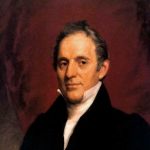Gene Bridges informed me of a refutation of my use of Keach and Booth as examples of Baptist leaders whose testimonies stands against the new IMB guidelines on baptism. Both men were baptized in Arminian churches and later became Calvinist Baptist pastors.
Here is a comment by Ben Stratton left on Steve McCoy’s blog:
I asked a Missionary Baptist preacher friend of mine who is a former General Baptist pastor and a student of General Baptist history about Tom Ascol dilemma of Keach and Booth. His answer is very interesting:
“The Orthodox Creed of 1678-79 probably qualifies as the leading English General Baptist confession of faith. Here is what it says about the perseverance of God’s saints:
‘Those that are effectually called, according to God’s eternal purpose, being justified by faith, do receive such a measure of the holy unction from the Holy Spirit, by which they shall certainly persevere unto eternal life.; ”
The major issue for the English General Baptists was the nature of the atonement. On the perseverance of the saints, (eternal Security) they were in agreement with the Particular Baptists. The same was true of the early American General Baptists such as Benoni Stinson.This in effect nullifies Tom Ascol’s examples from Baptist history. Their baptisms were perfectly in line with the new IMB policy.
Not quite. The Orthodox Creed was not an Assembly confession but derived from churches in the Midlands. It hardly qualifies as “the leading English General Baptist confession of faith.” Furthermore, to measure Keach’s early Arminianism by it is anachronistic since Keach was a well-established Particular Baptist by the time that document was produced. It was issued in 1678 on the heels of the 1677 (later published in 1689) Second London Baptist Confession and sought to demonstrate how far these General Baptist churches could go with their Calvinistic brethren’s beliefs. Indeed, the preface of this confession states its purpose as being to “unite and confirm all true protestants in the fundamental articles of the Christian religion, against the errors and heresies of the church of Rome.” General Baptist historian, Adam Taylor, in his History of the English General Baptists, says this about the pervasive view of apostasy held by the General Baptist churches: “Amongst other motives which they urged, to engage professors to a holy circumspection of conduct, a powerful one was, the fear of final apostacy (sic).” He goes on to say about the Orthodox Creed, “For we have not found any of this denomination, except the authors of the Orthodox Creed [who were 54 in number], who maintained the doctrine of the impossibility of true believers falling from grace” (217).
In addition, William Lumpkin says that this confession “does not appear to have enjoyed large influence beyond the Midlands” (Baptist Confessions of Faith, 296).
Far more influential and typical of General Baptist belief was the Standard Confession. It was first adopted by the General Assembly of General Baptists meeting in London in 1660.
XVIII. That such who are true Believers, even Branches in Christ the Vine, (and that in his account, whom he exhorts to a bide in him, John 15. 1, 2, 3, 4, 5.) or such who have charity out of a pure heart, and of a good conscience, and of Faith unfeigned, 1 Tim. 1. 5. may nevertheless for want of watchfulness, swerve and I turn aside from the same, vers. 6, 7. and become as withered Branches, cast into the fire and burned, John. 15. 6. But such who add un to their Faith Vertue, and unto .Vertue Knowledge, and unto Know ledge Temperance, &c. 2 Pet. 1 5, 6, 7. such shall never fall, vers. 8, 9, 10. ’tis impossible for all the false Christs, and false Prophets, that are, and are to come, to deceive such, for they are kept by the power of God, through Faith unto Salvation, 1 Pet. 1. 5.
I hope this helps clarify the discussion and serves as an ample refutation of Statton’s attempt to dismiss Keach and Booth as Baptist witnesses against the new IMB guidelines on baptism.















